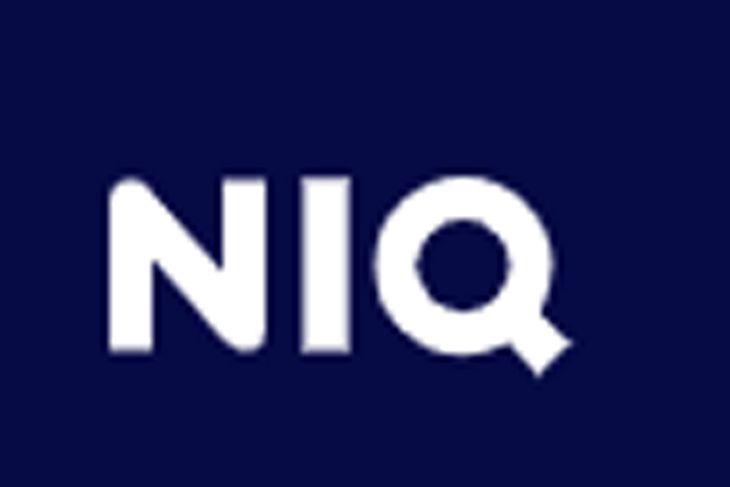
With private label stigma waning, global sales growth surges 4.3% year-on-year
Top 10 global brands outpace private labels with +4.8% sales growth
Retailers and manufacturers vying for consumer attention can leverage collaborative relationships for mutual growth
Chicago--(ANTARA/Business Wire)-- NielsenIQ (NIQ) today released Finding Harmony on the Shelf: 2025 Global Outlook on Private Label & Branded Products, a new report which offers an in-depth analysis of shifting global consumer attitudes around private label and branded products, catalysts driving these trends globally and regionally, and important insights retailers and CPG manufacturers can keep in mind to strategically reach consumers within a fast-moving macroeconomic environment.
According to NIQ’s report, more than half (53%) of global respondents are increasingly purchasing more private label products. Simultaneously, the top 10 global brands also experienced a resurgence in global sales momentum in 2024, signaling that retailers and CPG manufacturers will continue to compete for consumer attention on the shelves of large and small grocery stores and retailers alike.
“Consumers are continuously changing their shopping habits to adapt to today’s current market conditions. Our report underscores the critical need for collaboration between manufacturers and retailers to drive the next wave of CPG growth and effectively capture consumers’ shifting attention,” said Marta Cyhan-Bowles, NIQ’s Chief Communications Officer and Head of Global Marketing COE. "In finding creative ways to work together, both parties can capitalize on these trends to unlock new opportunities and enhance market presence."
Key Trends Shaping Private Label and Branded Product Growth
Consumer perception of private label products and their quality has significantly improved, while global brands also see strong performance. Key trends driving growth of both private label and branded products include:
• Perceived value shift: The stigma around private labels is waning, with 68% of respondents viewing them as good alternatives to name brands and 69% perceiving them as offering good value.
• Growing demand: As a result, 60% of global consumers say they would buy more private label products if a larger variety were available.
• Private label stabilization: Share of sales has risen by 1.4 points globally, but there are signs of slowed growth across all regions. In Europe, growth has slowed from nearly 12% in 2023 to just under 4% in 2024.
• Premiumization: More than half of global consumers (54%) say they are likely to treat themselves by upgrading to a premium-brand product, with younger generations—Millennials (61%) and Gen Z (58%)—exceeding that average.
• Openness to explore: More than half (58%) of respondents also say they’re expanding their brand purchases across multiple categories. Another 58% of global respondents say that brand or store brand is irrelevant, choosing products based on necessity instead.
“There’s never been a better time for organizations to rally together to find ways to grow the overall size of prize with consumers. Growth is attainable for many companies in this wildly diverse playing field. Retailers should maximize category traffic by balancing a strategic mix of both name-brand and private label products—and consider co-promotion programs to boost overall category growth. On the other hand, manufacturers need to safeguard and expand their market share by innovating with trade incentives, while working to preserve their brand's overall value proposition,” said Lauren Fernandes, Vice President, Global Thought Leadership, NIQ.
The positive consumer sentiment is supported by impressive worldwide sales data, with NIQ Retail Measurement Services reporting a 4.8% increase in sales for top 10 global brands, slightly surpassing the 4.3% annual sales growth of private labels. However, regional differences exist: Egyptians show a stronger preference for private labels, whereas South Koreans are less likely to see private labels as a viable alternative to name brands.
Harmonizing Success Between Private Label and Branded Products
Strategies retailers and manufacturers can use to create synergies for mutual growth include:
• For private labels:
o Brand halo effect: Proximity to name brands enhances private labels' appeal. Brands thrive on pride (30%), superiority (37%), and notoriety (48%). Trust in private labels grows when they match premium quality, boosting sales.
o Price anchoring: Branded products are often sold at a 26% premium compared with private label products across CPG categories globally. A price gap can inspire a consumer to make a value-driven choice to try something new or comparable.
• For branded products:
o Increased traffic: Nearly two-thirds (60%) of global consumers trust store brands due to retailer endorsement. NIQ data shows that top UK retailers boosted both private label and branded product sales. In 2024, three UK retailers drove over 70% of private label growth and over 86% of branded product growth, highlighting how a retailer’s reputation can benefit all its products—name brands included.
o Market expansion: Private labels drive over half of sales growth in categories like ready-to-drink coffee and snack bars, creating opportunities for all brands. Initially budget-friendly, they enhance category perceptions and boost name brand acceptance. Brands should focus on areas where private labels grow category opportunities.
About Finding Harmony on the Shelf: 2025 Global Outlook on Private Label & Branded Products Report
This first-of-its-kind report focuses on trends driving global growth, assesses symbiotic/competitive dynamics between private label and branded products, and identifies opportunities for retailers and manufacturers to drive collaboration and growth. To understand how these trends are impacting your local market, download a free copy of the report.
Research Methodology
The NIQ 2025 Private Label & Branded Products report global survey was conducted between December 2024 and January 2025, polling over 17,000 online consumers in 25 countries throughout Asia Pacific, Europe, Latin America, the Middle East & Africa, and North America. The respondents include consumers who often make shopping decisions on behalf of their households and agreed to participate in this survey. The sample for each country incorporated age and gender quotas aligned with respective census data, while ensuring that each demographic group maintained a statistically reliable base size.
About NIQ
NielsenIQ (NIQ) is a leading consumer intelligence company, delivering the most complete understanding of consumer buying behavior and revealing new pathways to growth. NIQ combined with GfK in 2023, bringing together two industry leaders with unparalleled global reach. Our global reach spans over 90 countries covering approximately 85% of the world’s population and more than $ 7.2 trillion in global consumer spend. With a holistic retail read and the most comprehensive consumer insights—delivered with advanced analytics through state-of-the-art platforms—NIQ delivers the Full View™.
For more information, please visit www.niq.com.
View source version on businesswire.com: https://www.businesswire.com/news/home/20250327356322/en/
Contacts
Source: NielsenIQ
Reporter: PR Wire
Editor: PR Wire
Copyright © ANTARA 2025









